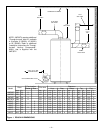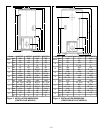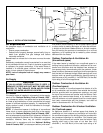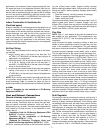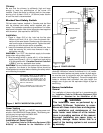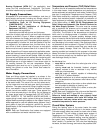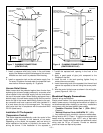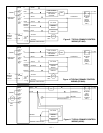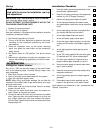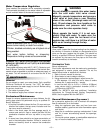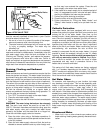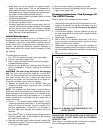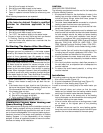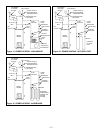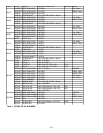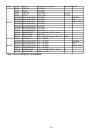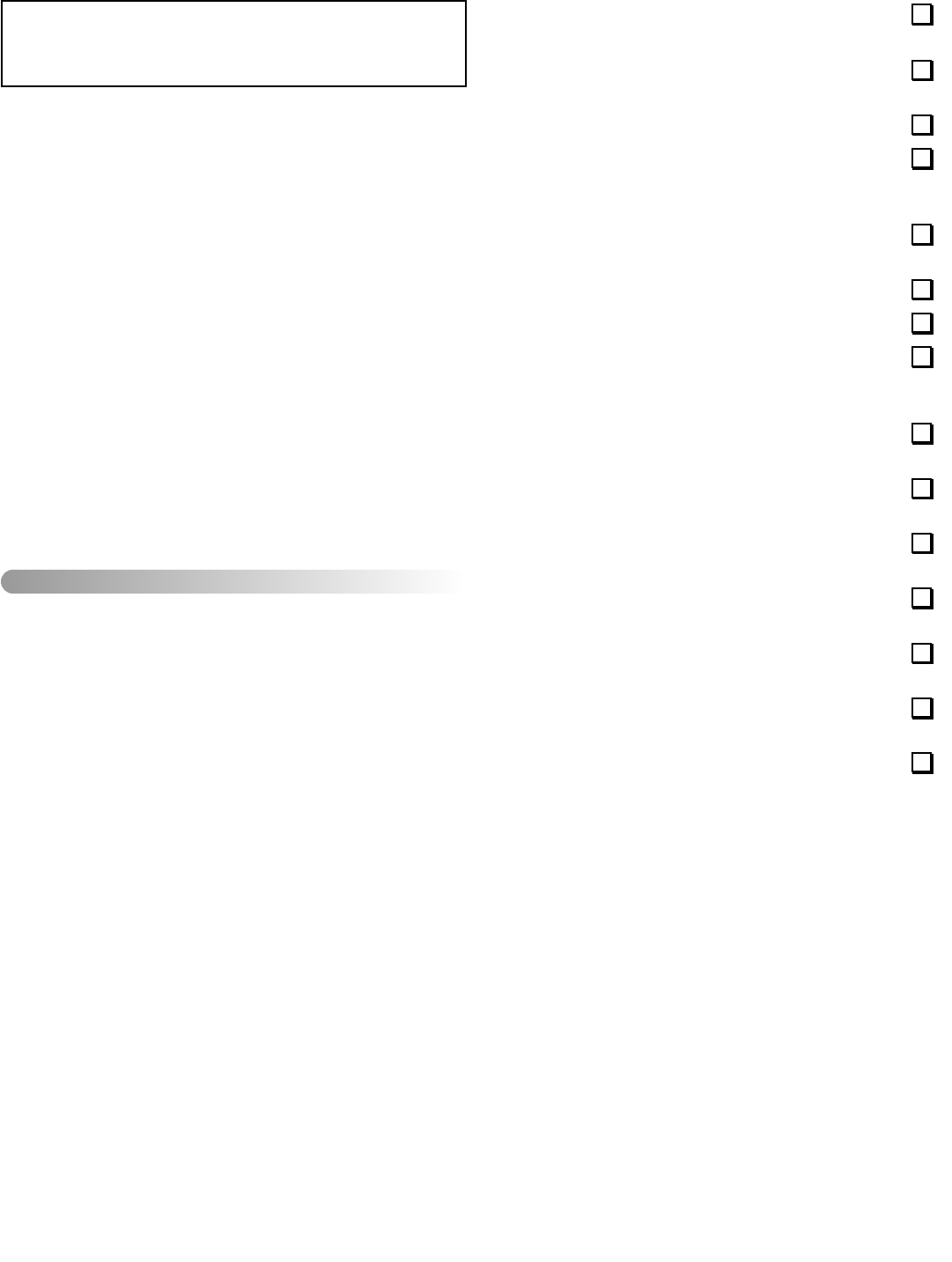
– 12 –
Startup
MAKE SURE THAT THE HEATER IS FULL OF WATER.
See “Filling the Water Heater” section.
DO NOT ATTEMPT TO START BURNER IF ANY OF THE
FOLLOWING CONDITIONS EXIST:
1. Excess oil has accumulated.
2. The unit is full of vapours.
After the installation is finished and the installation checklist
completed, proceed as follows:
1. Set the draft regulator for full draft.
2. Turn on oil at the tank. Adjust the air band on the burner
according to the instructions provided by the burner
manufacturer.
3. Close the inspection cover on the burner mounting
panel, and press the reset button on the combustion
safety control.
4. Set electric switch to “ON” position. The burner should
start.
5. Make the air adjustment and take the necessary com-
bustion test readings as specified by the burner manu-
facturer.
Filling the Water Heater
Do not turn "ON" the electrical supply to the water heater
until all the following steps, including “Startup” steps, have
been completed.
1. Make sure the drain valve is closed.
2. Open a hot water faucet associated with the system.
3. Open the cold water supply valve.
NOTE: When filling, avoid water leakage. Do not allow the
insulation of the water heater to get wet as water can cause
electrical malfunction.
4. When water runs out of the hot water faucet in a steady
stream, the tank is full.
5. Close the hot water faucet and check the system for
leaks. Repair as required and retest.
6. Connect a hose to the drain valve and route to a suitable
drain. Open the drain valve and let water run to flush out
any foreign matter that may have entered the system.
Once flushed, close the drain valve and disconnect hose.
Repeat steps 2-5.
Installation Checklist
NOTE: refer to the instruction manual sup-
plied with the burner for installation, start up
and adjustment.
Check Here
1. Have the safety precautions described in the
manual been implemented?
2. Does the oil piping conform to the recommen-
dations of your Oil Supply Company?
3. Has the oil piping been tested for leaks?
4. Is the clearance between the water heater
and combustible construction as per specifica-
tions?
5. Is the water piping correctly connected? Are
you certain that there are no leaks?
6. Is the water heater filled with water?
7. Is the cold water supply valve open?
8. Is the flue pipe installed properly and are the
vertical and horizontal runs properly support-
ed?
9. Is the draft regulator intake opening unob-
structed?
10. Is the T&P valve installed? Are the drain pipe
(if installed) and T&P valve unobstructed?
11. Is a drain pan installed (if required) with a
proper overflow pipe, directed to a drain?
12. Have you taken steps to prevent water dam-
age in case of leaks?
13. Does the area around the water heater have
adequate ventilation?
14. Air moving device does not create negative
pressure?
15. Flammable vapours and materials are not
placed in the proximity of the water heater?
If the answer to all the above is “Yes”, proceed with the
“Startup” instructions.
IV) OPERATION



